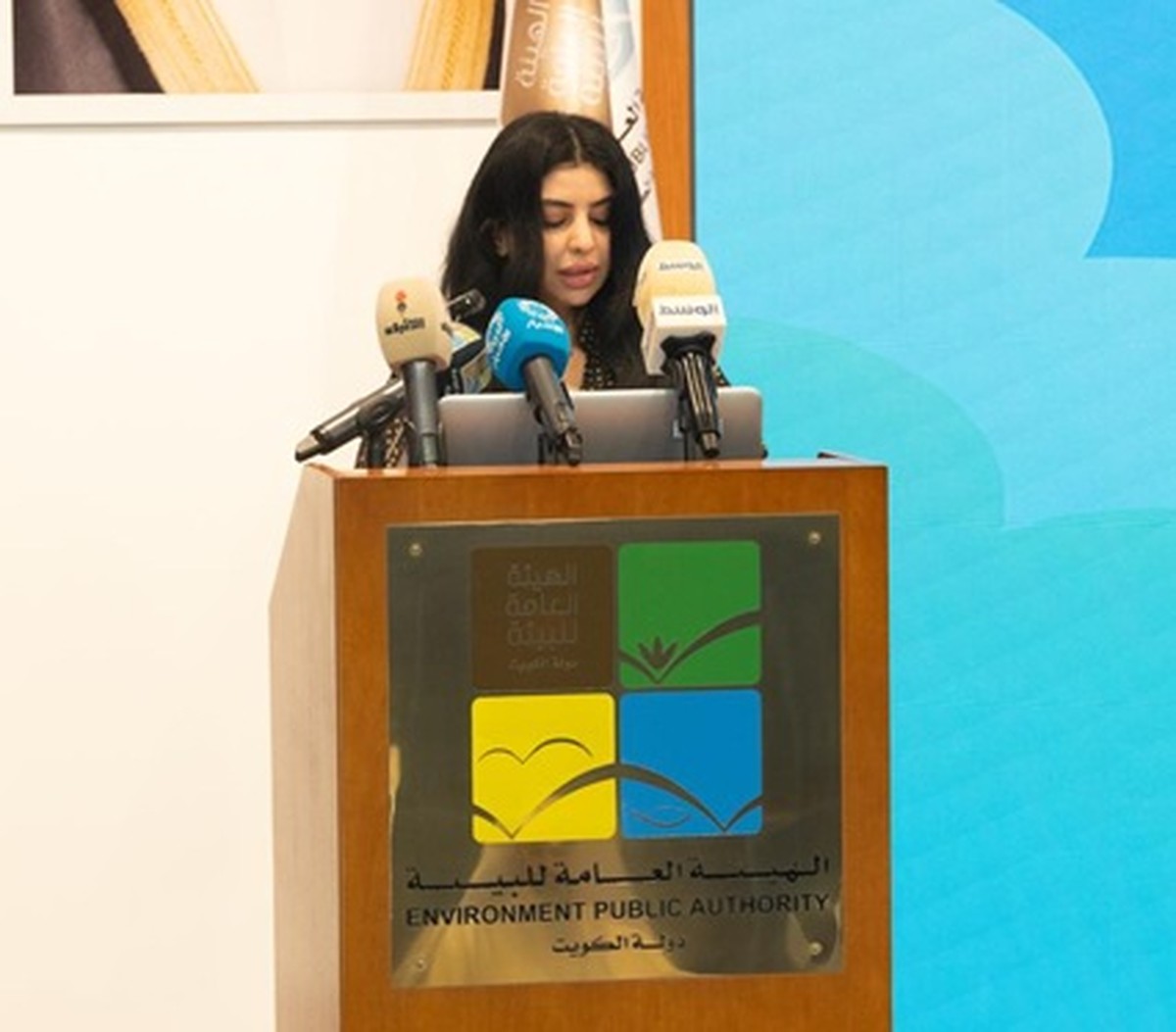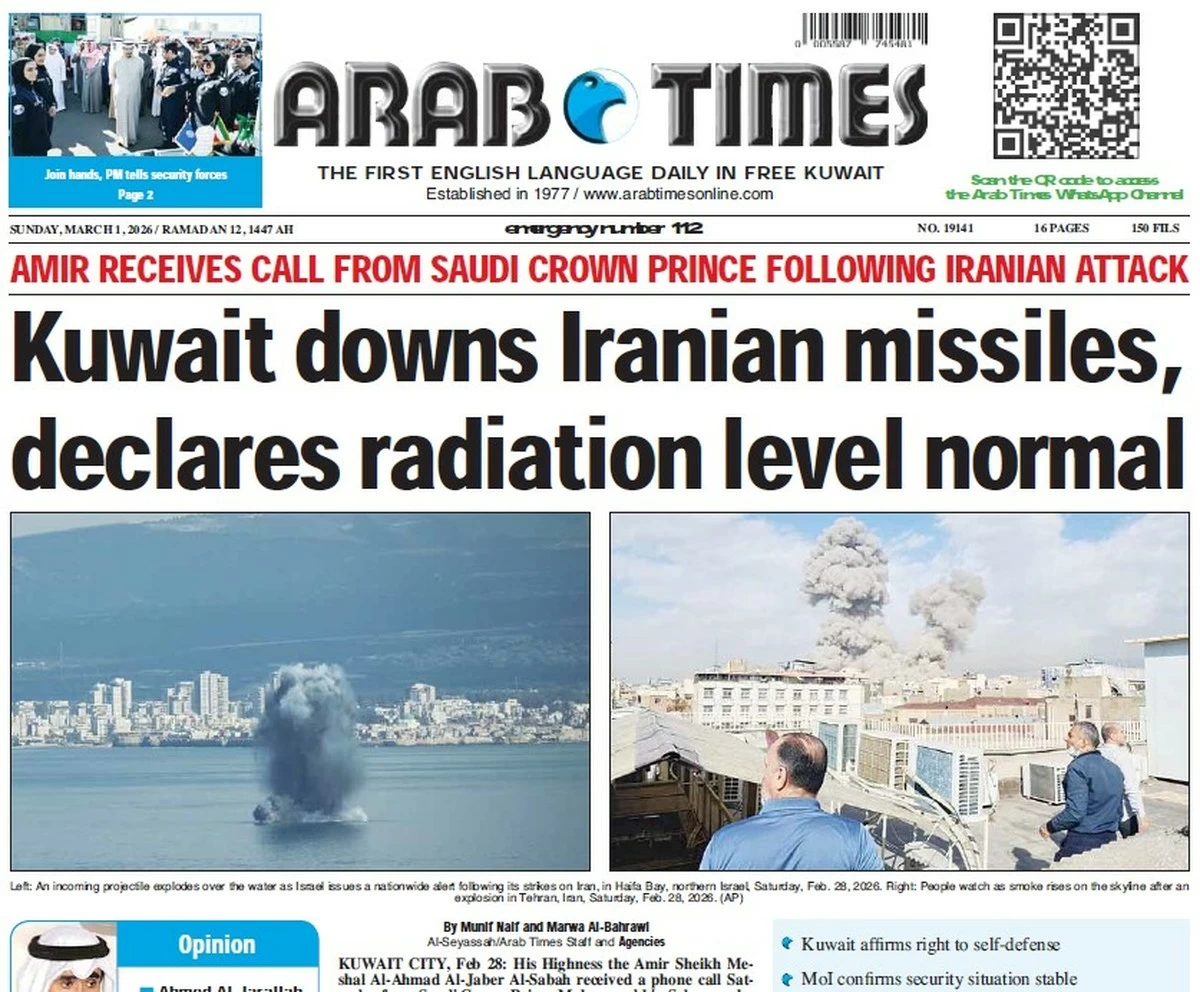16/09/2025
16/09/2025

KUWAIT CITY, Sept 16: Acting Director General of the Environment Public Authority (EPA), Nouf Behbehani, reaffirmed on Tuesday Kuwait’s firm commitment to protecting the ozone layer and advancing its national vision for sustainable development, aiming to be a pioneering model in the global environmental movement.
Speaking during a joint celebration by the EPA and the United Nations Development Program (UNDP) of the International Day for the Preservation of the Ozone Layer, Behbehani said this year’s event carries the slogan “From Scientific Knowledge to Global Action,” emphasizing science as a tool to reveal ozone layer dangers and international cooperation as essential to its protection and ensuring a safe environment for future generations.
She highlighted the Montreal Protocol of 1987 as a historic milestone, noting that over 190 countries, including Kuwait, which ratified the protocol in 1992, joined the agreement recognizing environmental protection as both a national duty and a humanitarian cause.
Behbehani detailed Kuwait’s proactive policies in gradually eliminating most ozone-depleting substances and establishing a specialized national unit to monitor the protocol’s implementation. She confirmed Kuwait’s active role in the global effort to protect the planet.
She also noted Kuwait’s ratification of the Kigali Amendment in November 2024, marking a more challenging phase focused on reducing greenhouse gases that drive climate change. The EPA has prepared a comprehensive national plan featuring a clear roadmap, advanced legislation, and clean technologies, in cooperation with Montreal Protocol agencies and the Multilateral Fund, ensuring Kuwait remains a leader in building a safer, sustainable environmental future.
Emma Morley, UNDP Resident Representative in Kuwait, praised the ongoing partnership with the EPA, highlighting a new environmental cooperation agreement signed last November. This agreement, she said, marks a strategic milestone in Kuwait’s transition under the Kigali Amendment framework, renewing Kuwait’s commitment to ozone protection and strengthening its national climate and environmental agenda.
Morley explained that the agreement serves as a roadmap to develop a comprehensive national plan targeting reductions in climate-harming gases, particularly hydrofluorocarbons (HFCs), promoting the adoption of energy-efficient cooling technologies, and enhancing regulatory frameworks and policies supporting sustainable cooling.
She noted Kuwait’s significant achievement in reducing ozone-depleting substance consumption by nearly 65 percent compared to baseline levels, aligning with Montreal Protocol obligations, reflecting the country’s proactive approach to environmental and public health protection.
Morley described the agreement as a strong testament to Kuwait’s leadership in ozone protection and climate action, setting a regional benchmark. She expressed pride in supporting Kuwait’s efforts to translate Kigali Amendment commitments into concrete results that advance national priorities and global environmental goals.
She underscored that the Kigali Amendment is among the most effective international measures against climate change, with the phase-out of HFCs yielding significant environmental benefits, boosting energy efficiency, fostering sustainable economic growth, and improving public health.
The International Day for the Preservation of the Ozone Layer, observed annually on September 16, was established by the United Nations General Assembly in 1994 to commemorate the signing of the Montreal Protocol in 1987.


